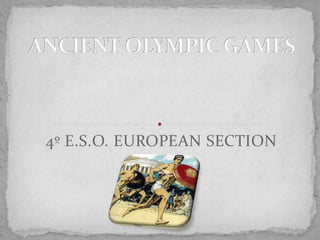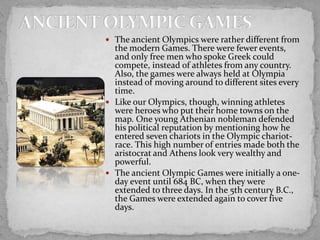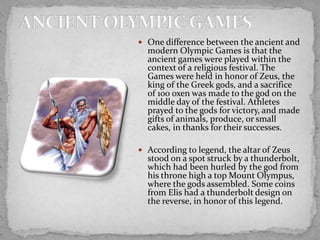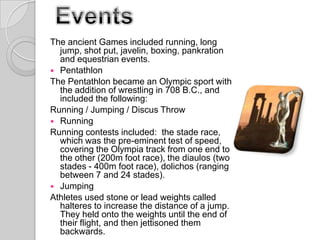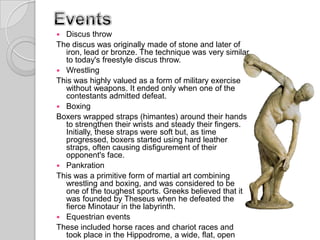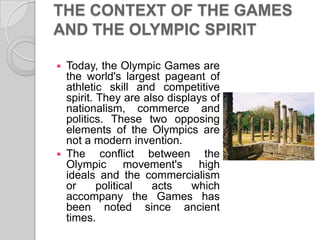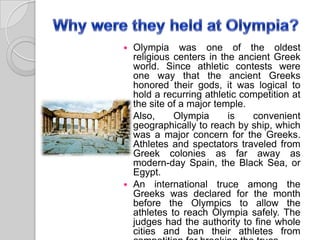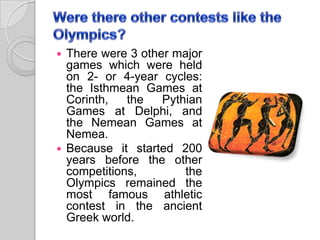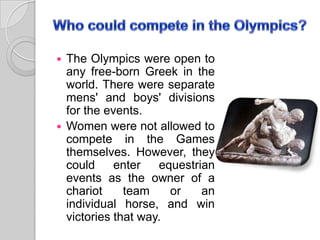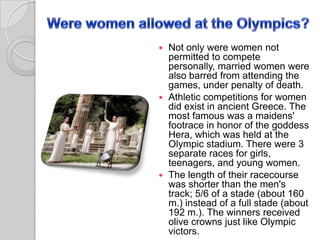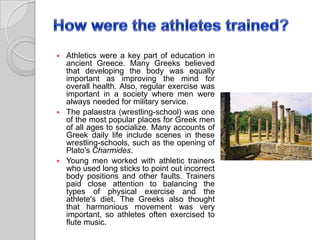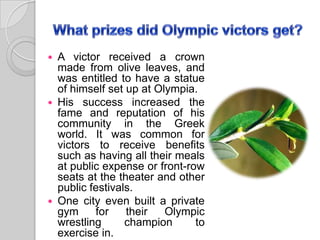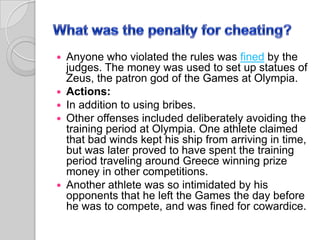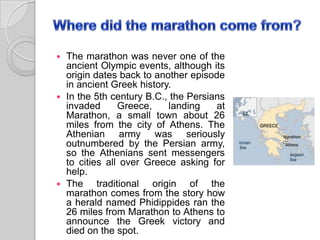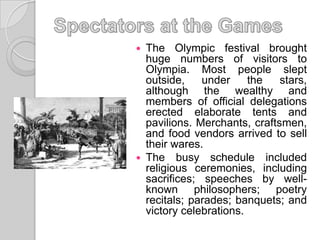The ancient Olympics were held every four years at Olympia in Greece to honor Zeus. Only free Greek men could compete in events like running, long jump, wrestling, and chariot racing. Winning athletes brought fame to themselves and their hometowns. Over time, the Games grew from one to five days. They were part of a religious festival with sacrifices to Zeus. While promoting athleticism and Greek unity, the Olympics also saw conflicts between ideals and commercialism, as with modern Games.
